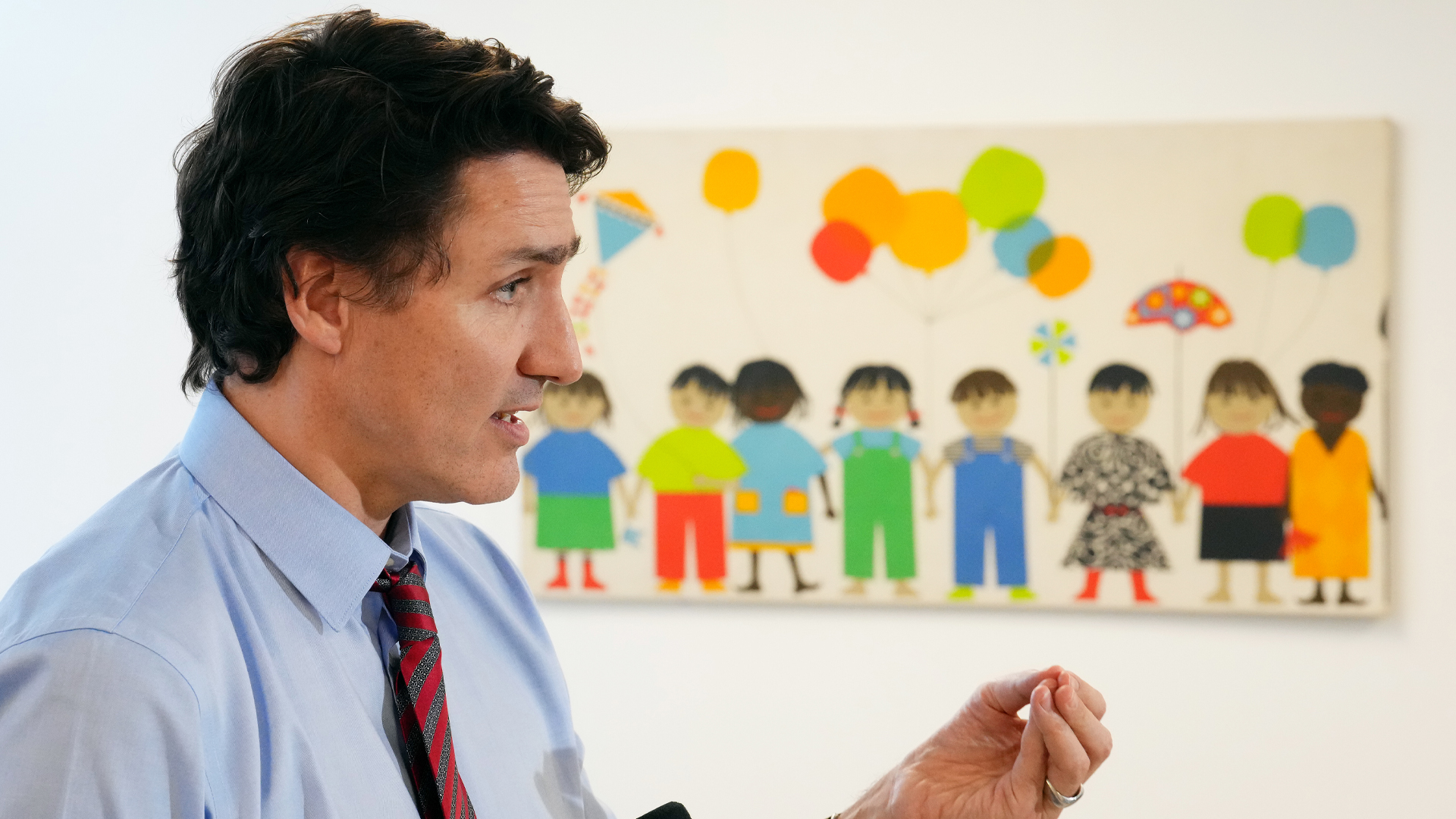
(Version française disponible ici)
In April 2021, Ottawa announced with great fanfare an investment of $30 billion over five years to implement a national $10-a-day child care program across the country.
As Canada faces a labour shortage from coast to coast, difficulties in recruiting and retaining child-care workers could undermine provincial governments’ efforts to create spaces.
Quebec, which remains the North American leader in early childhood education, will receive a total of $6 billion from Ottawa, with no strings attached. It will use this money to complete its network of subsidized spaces.
The goal: creating spaces quickly
In the fall of 2021, the Legault government announced its “Grand chantier pour les familles,” an action plan to complete the network of early childhood education and care services by creating 37,000 new subsidized spaces over five years.
The plan proposes innovative solutions for attracting and retaining child-care workers, which the rest of the country could learn from, even though various indicators show that the new spaces will be of variable quality.
Quebec’s strategies include increasing the maximum number of children per facility from 80 to 100, streamlining the opening process for early childhood centers, and allowing temporary facilities to accommodate children before a facility construction or expansion project is finalized.
However, the crux of the matter is recruiting staff. Taking into account the need to create 37,000 new spaces, the government anticipates that 17,800 new educators will have to be hired.
Challenges to the Quebec model
The Quebec model has faced significant challenges, including a lack of spaces, variable but rarely excellent quality of services, under-attendance by children from disadvantaged backgrounds, and access difficulties for children with special needs.
These challenges are compounded by the labour shortage, which has increased since the pandemic. Enrollment in the college child-care technology program dropped 32 per cent between the 2015-2016 and 2020-2021 school years, according to the government.
The pandemic also appears to have caused the closure of many home child-care services, a phenomenon not unique to Quebec. There were 89,953 family child-care spaces in Quebec in March 2016, according to ministry data. Six years later, in 2022, that number was only 66,338.
Finally, early childhood centers, subsidized daycares and unsubsidized daycares also faced a wave of departures in 2021-2222, with 2,956 educators leaving their jobs. More than 40 per cent of them (1,225) are qualified, meaning they have a college diploma (DEC) in child care techniques or a recognized equivalence.
Create new spaces or recognize existing ones?
One of the strategies of the Grand Chantier is to allow the integration of non-legally recognized and unlicensed child-care services into the formal service network regulated by the ministry. This strategy has two clear advantages. First, it provides a very complete picture of the total number of spaces. Second, it addresses the need for efficiency and the rapid creation of spaces in the formal system without having to recruit a new workforce.
That said, part of this creation of places is artificial in the sense that they are not “real” new places. They do not allow more parents, especially mothers, to remain in the workforce. These spaces are simply counted, and their quality is not guaranteed.
Attracting and retaining the child care workforce: How it works
Recognizing the link between the quality of services and staff training, the Ministère de la Famille wishes to conduct a major qualification operation for untrained educators in parallel. In addition to the crucial well-known measures to improve the salary of educators and to enhance the status of the profession of educator, three initiatives seem promising.
1- A diversity of paths
Quebec is putting in place a variety of pathways to train its workforce. While the DEC in early childhood education offers the most complete training (2,490 hours), the Attestation of College Studies (ACS) in early childhood education (1,200 hours) is an acceptable option.
This attestation can be obtained through paid training that allows for alternating between work and studies. The Early Childhood Work-Study Pathway includes 735 hours of classroom training and 240 hours of on-the-job training, for a total of 975 hours of training. Afterward, students must have their learning and skills recognized.
In addition, new specialized short courses in early childhood education are being developed to improve the training of staff.
2- Bursaries for each completed session
Since the fall of 2022, the government has been offering Perspective Québec scholarships for programs of study where there is a shortage of workers, including early childhood education. These scholarships can reach $9,000 for students who choose the most complete program, the DEC in early childhood education.
The originality of this measure lies in the timing of the bursary payments. For each session completed, students receive $1,500. In a context where educators are in high demand by employers, this measure could help keep some students in school a little longer.
3- Stop the hemorrhaging of family child-care services
Faced with a decline of 20 per cent in subsidized family child-care spaces between 2014 and 2020, Quebec has committed to consolidating this sector through financial incentives. First, family child-care providers who offer nine spaces rather than six can be offered up to $6,000 more per year. Second, a lump sum of $3,000 (which can be added to the first amount) is paid to family child-care providers who maintain at least six subsidized spaces throughout the year.
Finally, to stimulate the creation of new family child-care spaces, Quebec also offers a start-up grant of $3,500. Some municipalities also have their own financial support program, thus enhancing the assistance offered by the ministry.
Yes, but does it work?
In a word: yes. There are obviously many nuances and caveats, but Quebec has gone from a total supply of 283,477 government-recognized spaces in March 2021 to 292,987 spaces in February 2023 despite the generalized labour shortage.
As with available spaces, the majority of new spaces created are in facilities (the largest child-care centers, which can accommodate up to 100 children). And for the first time since 2016, the number of family child-care spaces is up. So all in all, the picture is quite positive, at least if we look at only the number of spaces that were created.
The hot potato: quality of services
Creating subsidized spaces is one thing. Ensuring these spaces are of high quality is another. Quebec is not doing so well when it comes to the quality of services offered. There is no indication that the situation is about to change – quite the opposite.
This is first and foremost the case with staff training. “The integration of non-legally recognized individuals into the network of educational child care services is intended to provide parents with minimum guarantees of the quality of educational services,” according to the Ministère de la Famille. This is a far cry from excellence!
Secondly, the temporary relaxations to the regulation respecting educational child care services – which reduced the ratio of qualified educators in child-care services from two to one in three – allowed the hiring of many new employees. The end of this flexibility was expected nine months after the end of the state of health emergency. This happened on June 1, 2022, and the two-in-three qualified staff regulation was phased in again in March 2023.
What will be done with existing, newly hired, unqualified staff? Will these individuals have access to a fast track to the Attestation of Collegial Studies in Early Childhood Education by virtue of having their work experience recognized? What is the value of this experience and degree?
The issue of qualified educator ratios is likely to become a hot potato in the coming months as the government seeks to increase the number of spaces for children, and the staff to provide them. The fact remains that the efforts of the Ministère de la Famille are considerable. And Quebec’s solutions, while not perfect, may be the way forward for the rest of the country.









